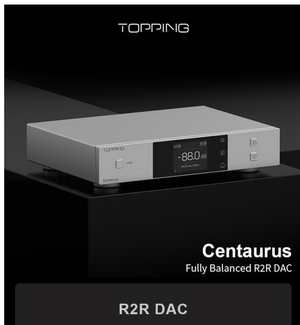What I'm suggesting, without hearing several DACs to compare, but knowing how they work, is that if you swapped the DACs and kept everything the same, the sound produced would be the same.
So lets just clarify this point, you've never compared DACs but with your infinite wisdom you can clearly state there'd be no difference in sound .... despite many, many reports of people, that have actually tried different DACs there is .... and with no experience at all, you know better than them?
Please appreciate the question mark, it's not conflictionary but trying to understand what you inexperienced comments are based on vs those that do have experience?
Your comment still doesn't prove DACs sound different. I'm guessing you've just bought a device and it contains a DAC, but how do you know it sounds different to the same device containing a different DAC?
All of my following comments are using the same Amp and speakers.
I've been through 3 weeks of testing various DACs .... I was using a WiiM Pro with coax out into my Arcam SA 30 using it's onboard DAC ... I have also compared that to using a Topping E30 DAC with analogue out to the Arcam.
I then bought a Chord Qutest and initially tested optical / coax out to the Chord and instantly heard a huge difference.
I also tried a WiiM Pro Plus that maybe has the same "guts" as the Pro but a better DAC and heard a difference again.
I then got a Bluesound Nano to compare it to, the Nano, using it's DAC was better than the WiiM sing the Arcam's DAC, the Nano using it's own DAC into the Arcam via analogue was a step up again.
The Nano using optical or coax into the Chord, again was better than the WiiM but another big step up was then using USB ut from the Nano into the Chord.
Every one of thesee scenarios sounds different, some more than others, but with all due respect your comments of "they won't sound different" without ever having tried it is complete naivety.
If you do and can't hear any differemce I'd get yourself booked in for a hearing check because you have a serious issue.




